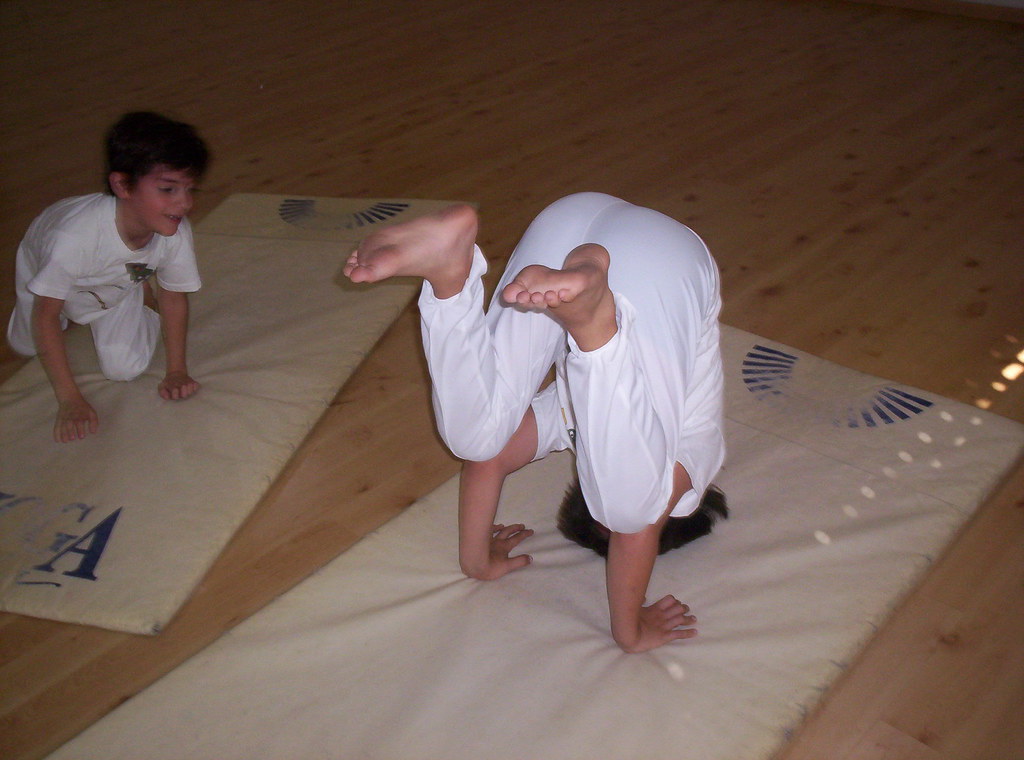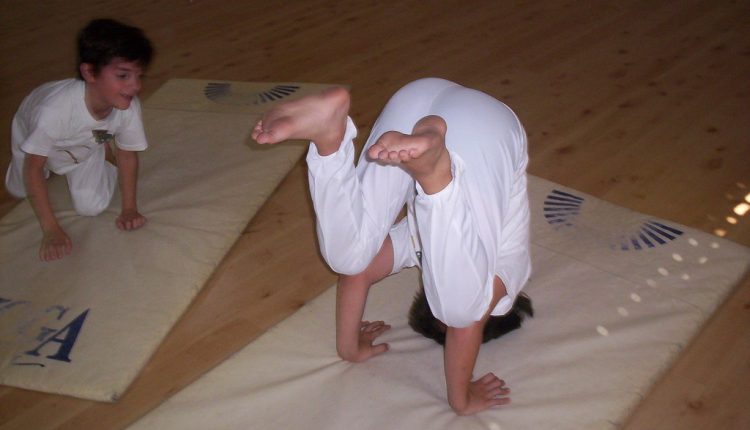
In a world where children are constantly bombarded with screens and schedules, it’s easy for them to lose sight of the simple joys in life. That’s where yoga comes in. Not only does it provide physical benefits, but it also fosters gratitude and optimism in young minds. By teaching children to slow down, breathe deeply, and appreciate the present moment, yoga can help them develop a positive outlook on life. In this article, we’ll explore the ways in which yoga can benefit kids and how parents and teachers can incorporate it into their daily routines. So grab a mat and let’s get started on the path to mindfulness and happiness!
1. “The Power of Yoga: Instilling Gratitude and Optimism in Children”
Yoga is a powerful tool that can help children develop a sense of gratitude and optimism. Through the practice of yoga, children can learn to focus on the present moment, cultivate a positive mindset, and develop a deeper appreciation for themselves and the world around them.
One of the key benefits of yoga is that it helps children develop mindfulness. By focusing on their breath and their body, children can learn to quiet their minds and tune out distractions. This can help them develop a greater sense of awareness and appreciation for the present moment, which can in turn help them feel more grateful for the things they have in their lives. Additionally, yoga can help children develop a more positive outlook on life. By practicing yoga regularly, children can learn to cultivate a sense of optimism and hope, even in the face of challenges or setbacks. This can help them develop a greater sense of resilience and confidence, which can serve them well throughout their lives.
In conclusion, the power of yoga to instill gratitude and optimism in children cannot be overstated. By practicing yoga regularly, children can learn to develop mindfulness, cultivate a positive mindset, and appreciate the world around them. Whether they are practicing yoga at home or in a class setting, children can benefit greatly from this ancient practice, which has been shown to have numerous physical, mental, and emotional benefits. So if you are looking for a way to help your child develop a greater sense of gratitude and optimism, consider introducing them to the practice of yoga today!
2. “From Downward Dog to Positive Thinking: How Yoga Can Benefit Kids”
Yoga is a practice that has been around for thousands of years, and it’s not just for adults. Kids can benefit from yoga too! Here are some ways that yoga can help children:
– Improves flexibility and balance: Yoga poses require children to stretch and hold positions, which can improve their flexibility and balance.
– Reduces stress and anxiety: Yoga teaches children to focus on their breath and be present in the moment, which can help reduce stress and anxiety.
– Increases self-esteem: Yoga can help children feel more confident in their bodies and abilities.
– Develops mindfulness: Yoga teaches children to be aware of their thoughts and feelings, which can help them develop mindfulness and emotional intelligence.
In addition to these benefits, yoga can also help children develop positive thinking. By focusing on their breath and body, children can learn to quiet their minds and cultivate a positive mindset. This can help them approach challenges with a can-do attitude and a sense of resilience. So, if you’re looking for a fun and healthy activity for your kids, consider introducing them to yoga!
3. “Namaste and Thank You: How Yoga Practice Can Foster a Positive Mindset in Children
Yoga is a practice that has been around for thousands of years and has been known to have numerous benefits for both the mind and body. In recent years, it has become increasingly popular among children as a way to promote physical fitness and mental well-being. However, the benefits of yoga go beyond just physical health. It can also foster a positive mindset in children, helping them to develop a sense of self-awareness, empathy, and gratitude.
One of the key principles of yoga is mindfulness, which involves being present in the moment and paying attention to one’s thoughts and feelings without judgment. This can be particularly beneficial for children, who often struggle with anxiety and stress. By practicing mindfulness through yoga, children can learn to manage their emotions and develop a more positive outlook on life. Additionally, yoga can help children to develop a sense of gratitude by encouraging them to focus on the present moment and appreciate the things they have in their lives. Through regular practice, children can learn to cultivate a positive mindset that will serve them well throughout their lives.
Some ways in which yoga can foster a positive mindset in children include:
– Encouraging self-awareness and self-reflection
– Promoting empathy and compassion towards others
– Developing a sense of gratitude and appreciation for the present moment
– Teaching children to manage their emotions and stress levels
– Helping children to develop a positive body image and self-esteem
Overall, yoga can be a powerful tool for promoting mental and emotional well-being in children. By incorporating yoga into their daily routines, parents and educators can help children to develop a positive mindset that will serve them well throughout their lives. In conclusion, yoga is a wonderful tool for children to cultivate gratitude and optimism. By practicing mindfulness, breathing techniques, and physical postures, kids can learn to appreciate the present moment and develop a positive outlook on life. Whether they are dealing with stress, anxiety, or simply seeking a fun and healthy activity, yoga can provide a safe and supportive space for children to explore their inner world and connect with others. So why not give it a try? Whether you’re a parent, teacher, or caregiver, you can help your child discover the benefits of yoga and set them on a path towards greater well-being and happiness. Namaste!

